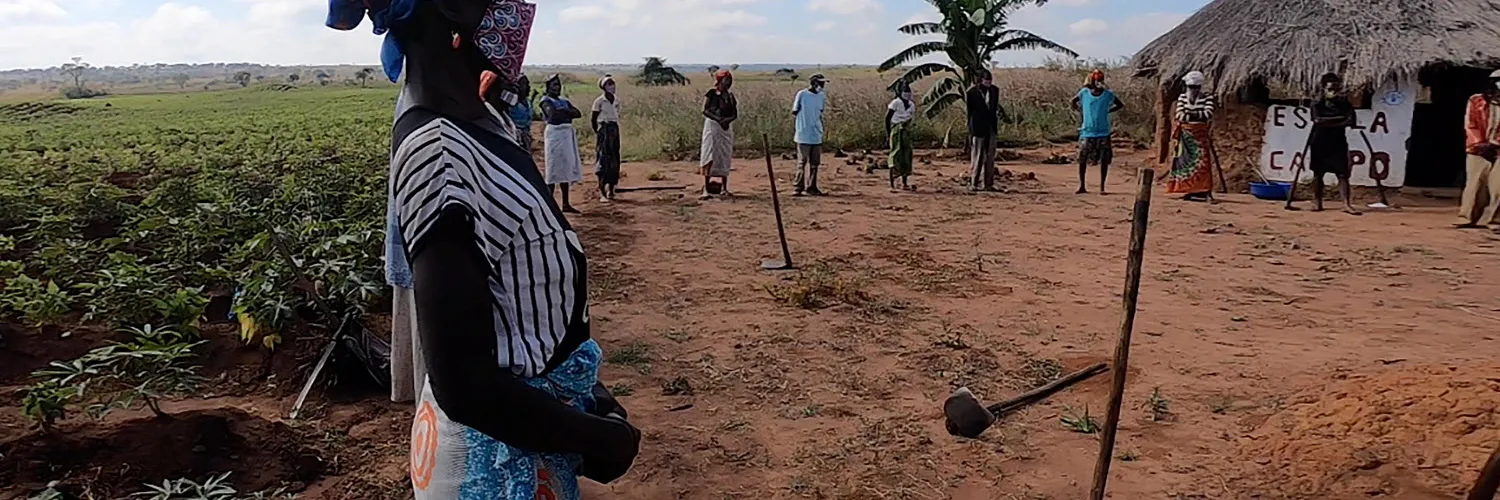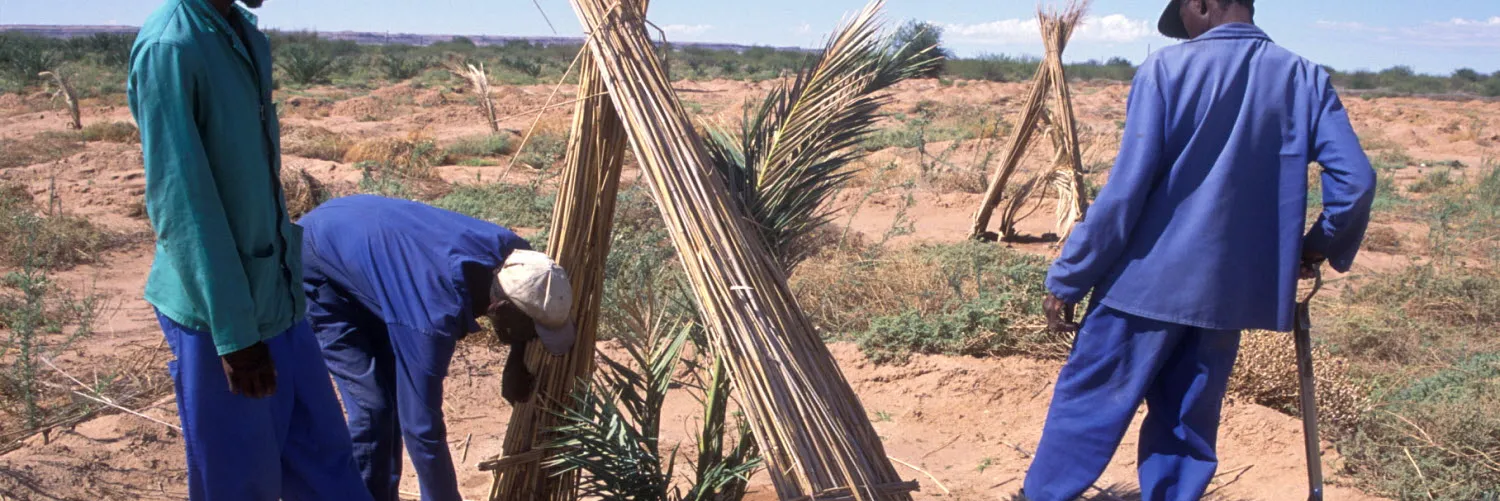Global coordination project for the SFM Dryland Sustainable Landscapes Impact Program (DSL-IP)
The process of land degradation is particularly acute in the drylands, which are home to more than 2 billion people and contain 44 percent of the world’s agriculturally productive land.
- Home
- Global coordination project for the SFM Dryland Sustainable Landscapes Impact Program (DSL-IP)

About the project
The overall objective of the DSL-IP is to avoid, reduce and reverse degradation and deforestation of land and ecosystems in drylands, in order to transform the course of development and produce multiple benefits for biodiversity, climate change, land degradation and livelihoods.
Operating in 11 countries across dryland regions in Central Asia (Kazakhstan and Mongolia), East and West Africa (Kenya and Burkina Faso) and Southern Africa (Angola, Botswana, Malawi, Mozambique, Namibia, Tanzania and Zimbabwe) the DSL-IP seeks to achieve transformational, durable and replicable change at scale by addressing common management challenges. Thereby, the DSL-IP Global Coordination Project (GCP) will coordinate and support the implementation of country-specific "child projects" across all 11 countries and lead the process of engagement with countries not directly participating in the DSL-IP.
Based on the geographic distribution of the DSL-IP countries, three regional platforms/facilities (Regional Exchange Mechanisms, REM) are envisaged under the GCP for the Great Steppes of Central Asia, the Savannas East/West Africa, and the Miombo and Mopane Woodlands in Southern Africa. Under the GCP, the REMs will facilitate a collaboration and exchange within and between regions as needed.
Knowledge Management: Communities of Practice (CoP)
The DSL-IP Communities of Practice (CoP) are spaces in which multi-directional, tailored, and thematic information is exchanged between the program stakeholders (and beyond) to enhance their collective learning and expertise in three key specific domains:
- Land Degradation Neutrality Assessments and Decision Making (CoP1),
- Good Sustainable Land Management Practices (CoP2), and
- Gender Responsiveness and Advocacy (WeCan) (CoP3).
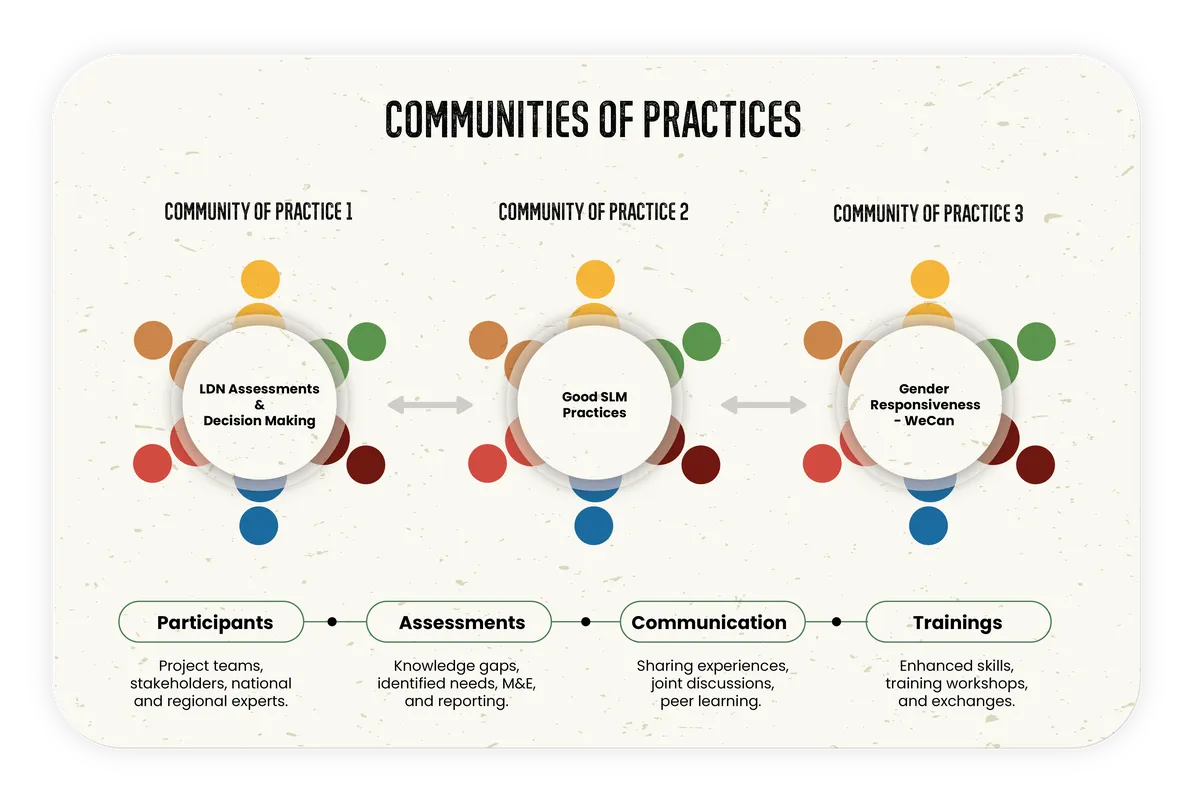
Community of Practice 1 – LDN Assessment for Informed Decision Making
CoP1 specifically emphasizes evidence-based good practices relevant to the assessment and monitoring of progress toward achieving land degradation neutrality in DSL-IP project landscapes. It also addresses the development of integrated land use plans (ILUPs) that incorporate the conceptual framework of Land Degradation Neutrality (LDN).
Community of Practice 2 – Good SLM and SFM Practices
CoP2 centers on good SLM/SFM practices designed to tackle prevalent management challenges in dryland landscapes. It concentrates on core themes identified within each DSL-IP country project, aiming to bolster their capacity to achieve impact at scale. The knowledge gained is intended to be applicable to other countries facing similar challenges.
Community of Practice 3 – WeCan, Gender Responsiveness and Women Empowerment.
WeCaN is a community of practice for women’s empowerment in dryland regions. Within the DSL-IP, WeCaN functions as a platform where project stakeholders gather to amplify successful experiences and opportunities, discuss challenges, and foster the integration of gender considerations with sustainable landscape management on local, national, and global scales.
WOCAT's Contribution
WOCAT provides support for the development and wider application of two Communities of Practice (CoP1 and CoP2), associated capacity development and exchange, and the wider dissemination in close alignment with other regional and global relevant initiatives, and in direct support of the child projects’ implementation.
WOCAT further contributes to SLM knowledge management and decision support within the DSL-IP. In relation to the CoP1 and CoP2, WOCAT
- facilitates joint learning (e.g. south-south cooperation),
- enables sharing of good practices and innovations,
- offers a space for experts-implementers exchange,
- enables application of standardized tools and methods, and
- helps to build equality, trust and ownership.
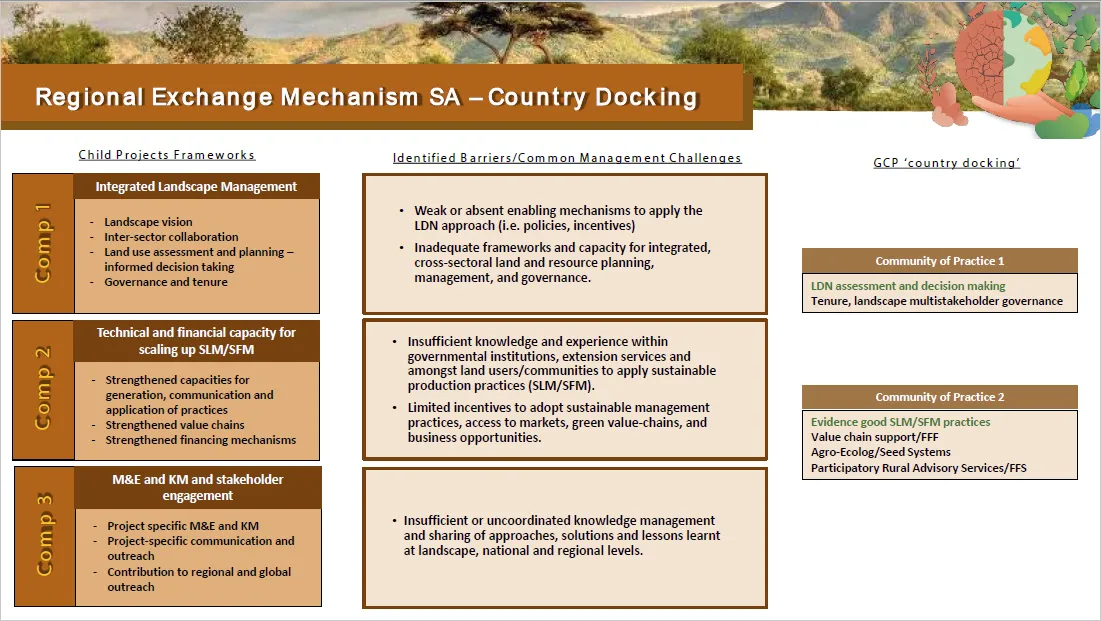
Why do we need immediate actions in drylands?
Climate change, food insecurity, and biodiversity loss are becoming increasingly important drivers of land degradation. The process of land degradation is particularly acute in the drylands, which are home to more than 2 billion people and contain 44 percent of the world's agriculturally productive land. Accounting for more than 40 percent of the global terrestrial area, dryland landscapes are important to the functioning of many ecosystem services.
What is the added value of the DSL-IP?
- highlight the importance of transboundary commitment towards dryland restoration, landscape management at scale, and biodiversity conservation;
- scale out evidence of good practices through effective knowledge exchange mechanisms and adaptive learning;
- implement harmonized systems for mapping and monitoring landscapes to generate synergies; while also limiting the risk of duplication or conflicts between projects; and
- support countries in achieving their Land Degradation Neutrality (LDN) targets
By following a streamlined and integrated landscape approach, this contributes to Land Degradation Neutrality (LDN) processes, building upon existing networks and establishing new partnerships.
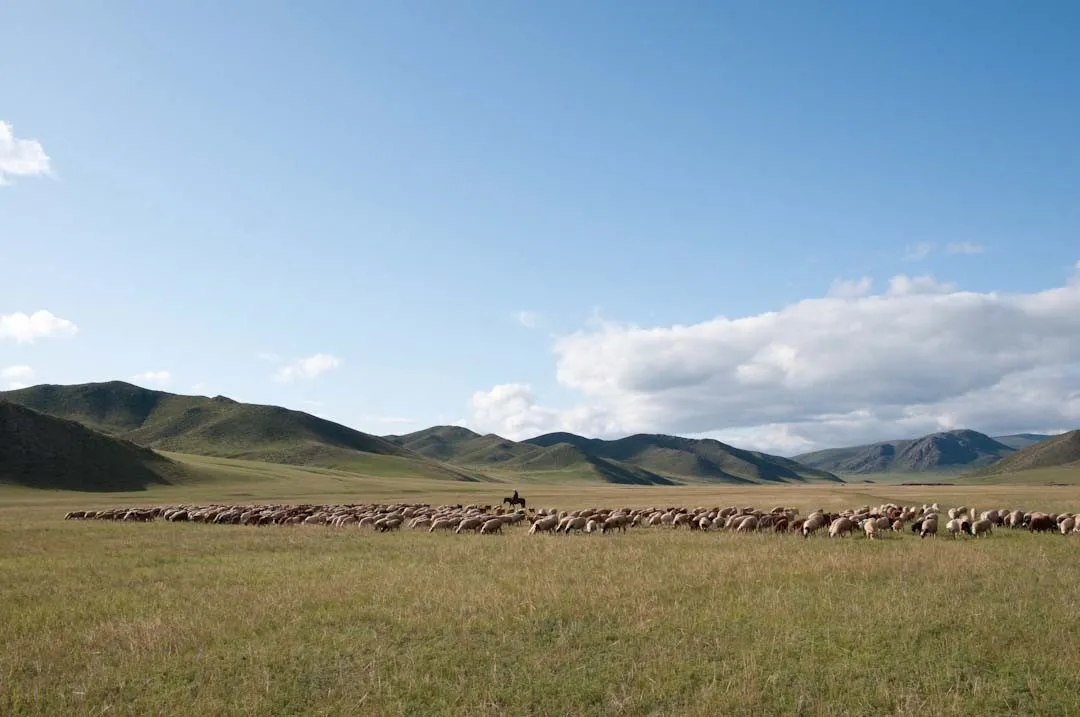
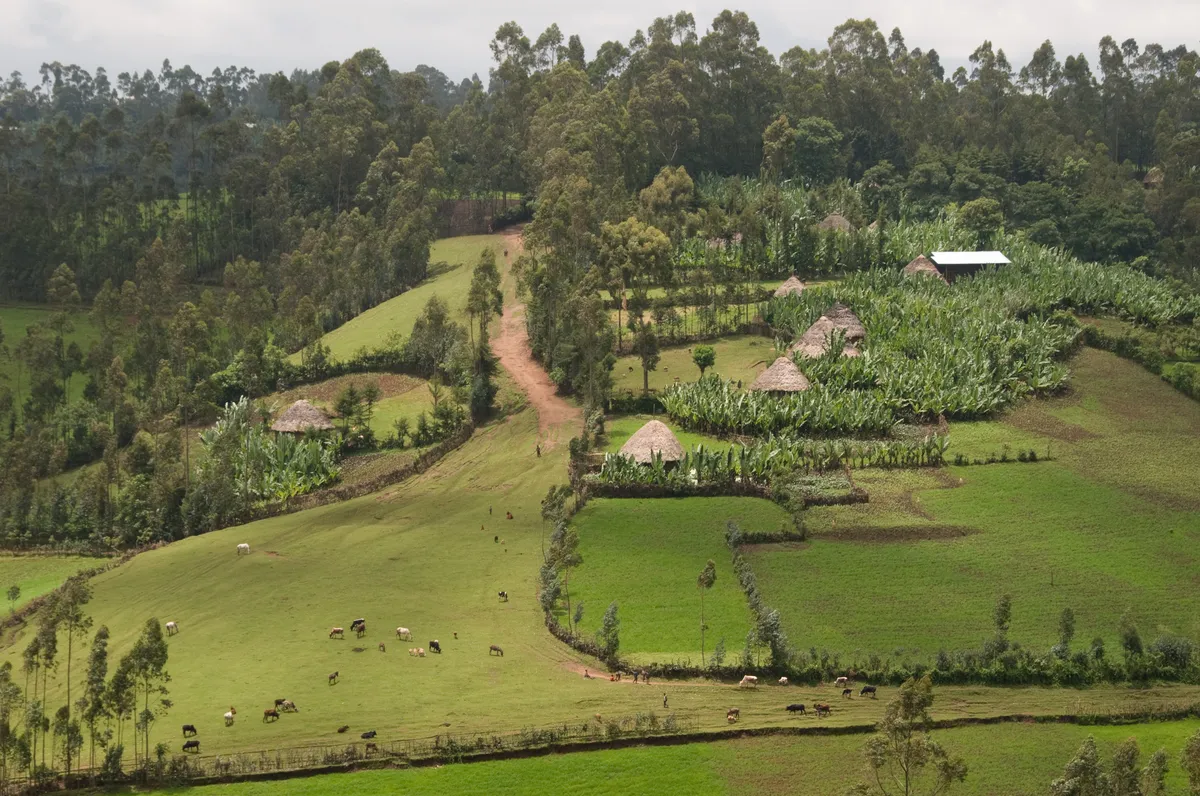

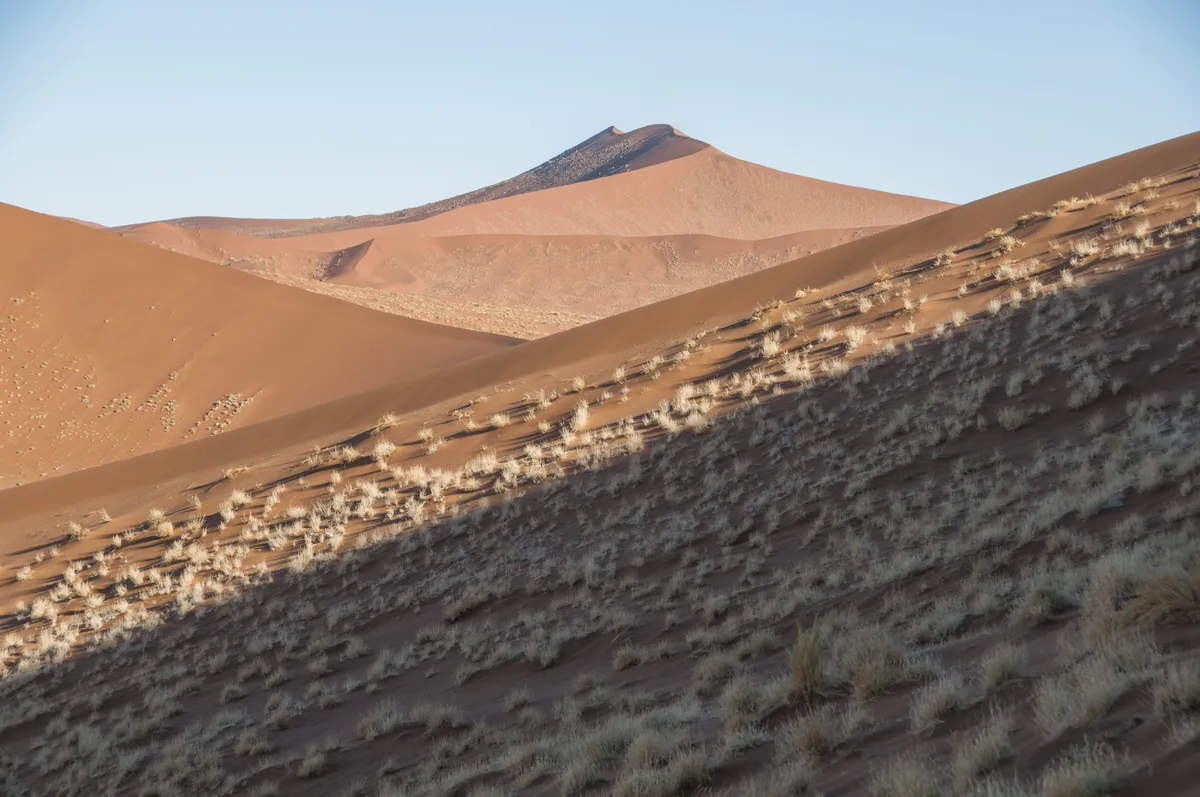
DSL-IP e-Learning Series

In collaboration with FAO and IUCN, WOCAT is organizing the DSL-IP e-Learning Series. This series covers a range of topics related to sustainable land management, good sustainable land management practices, and land degradation neutrality under the DSL-IP Communities of Practice 1 and 2.
The DSL-IP e-Learning Series is designed to facilitate the exchange of knowledge among participating countries, interested stakeholders, and experts in various SLM-related fields. Each session provides a platform for DSL-IP countries – and potentially others – to share insights, discuss challenges, and learn from each other’s experiences.
Recordings and presentation slides from previous sessions are available here.
Partners
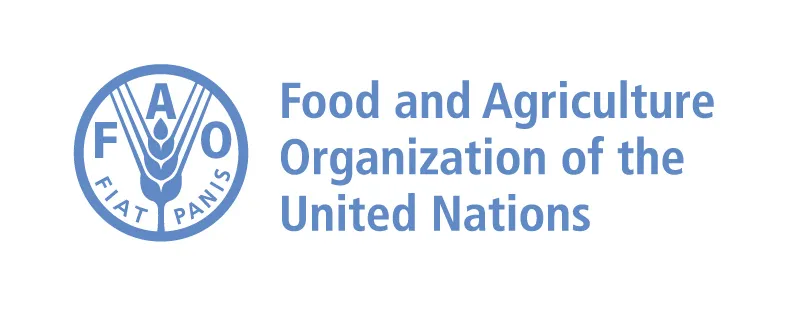

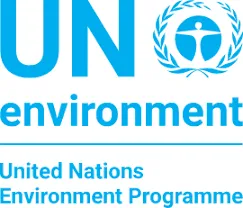

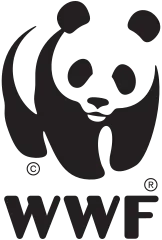
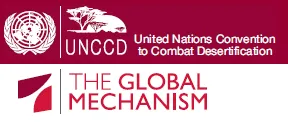
Funded by
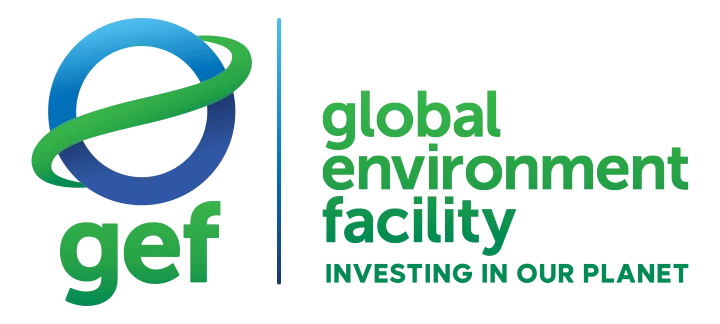
Contact
 Switzerland
Switzerland Switzerland
Switzerland Switzerland
Switzerland Italy
ItalyProject duration
May 2022 - December 2025

